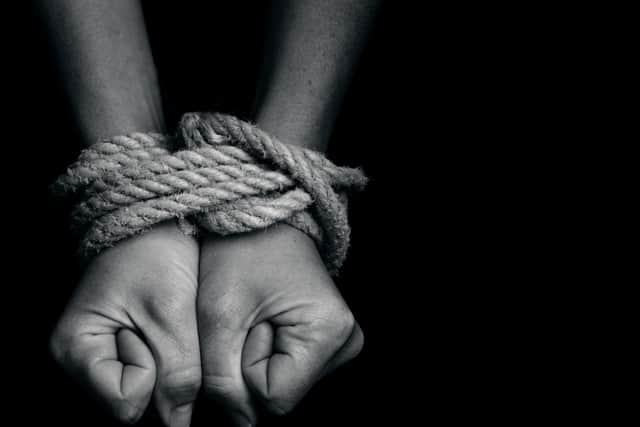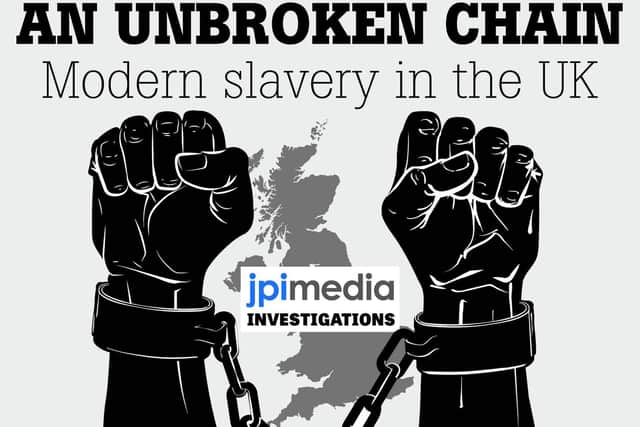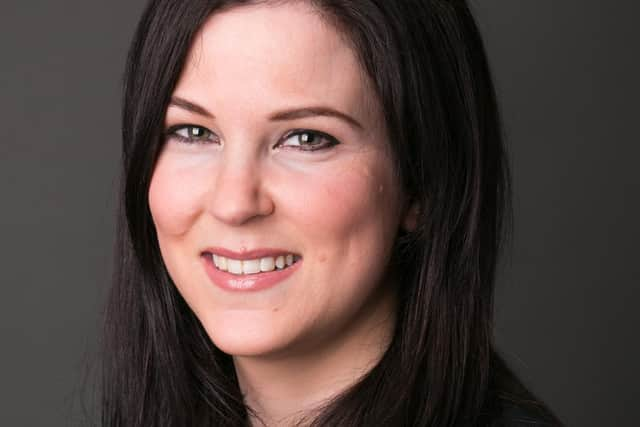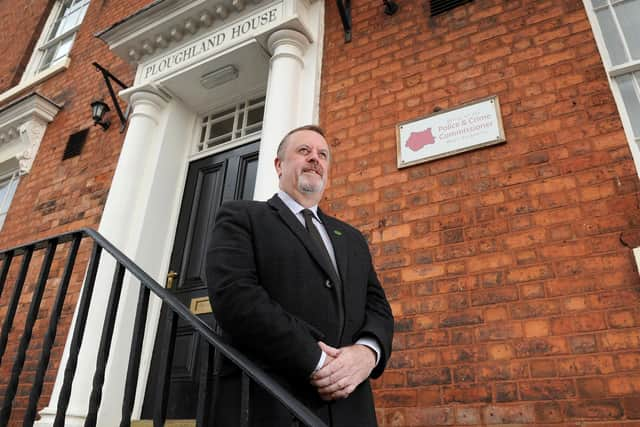More than 1,000 slavery and trafficking crimes in West Yorkshire unsolved since Modern Slavery Act passed
and live on Freeview channel 276
The Modern Slavery Act 2015 was designed to crack down on the crime – which ranges from forced prostitution to labour exploitation and domestic servitude – with its simplified offences and tougher punishments.
But a JPIMedia investigation has exposed the extent to which perpetrators are escaping justice, with just 4.4 per cent of modern slavery offences recorded by English and Welsh police forces between 2015 and September 2020 resulting in a charge.
Advertisement
Hide AdAdvertisement
Hide Ad

In West Yorkshire, only 52 of the 1,150 offences recorded in that period have resulted in a charge – a rate of 4.5 per cent.
The Human Trafficking Foundation, which brings together charities, public bodies and parliamentarians working to tackle slavery, has now said “radical” change is needed to how UK authorities pursue offenders and support victims.
Home Office figures show police forces in England and Wales have recorded 19,632 offences under the Modern Slavery Act to date, yet only 864 saw a suspect charged.
The proportion of cases resulting in a charge has fallen every year since 2015 as the volume of offences has increased.
Advertisement
Hide AdAdvertisement
Hide Ad

In 2015/16, 23.7 per cent of cases saw charges brought but this rate had fallen to 2.9 per cent by 2019/20.
And figures published since the coronavirus pandemic began reveal the charge rate has plummeted further still, to just 2 per cent between April and September last year.
The figures refer to the period in which an offence outcome was recorded, not when the offence took place. Cases are not recorded until they have been closed or a charge brought.
It means a total of 19,175 cases across Britain have seen no action taken, including 1,098 in West Yorkshire.
Advertisement
Hide AdAdvertisement
Hide Ad

Mark Burns-Williamson, West Yorkshire's Police and Crime Commissioner, said he was not surprised by the charge rate given his time as modern slavery lead for the Association of Police and Crime Commissioners as well as his role in setting up local and national anti-trafficking networks.
"These are human rights abuses committed against the most vulnerable in our communities and society, and that's whether they're trafficked from abroad or, increasingly, from within the UK," he said. "What we've seen certainly in the last two or three years is connectivity with things like county lines crimes and other legislation that can be used to tackle these perpetrators.
"I don't always take these statistics from the Home Office on face value because I know of the complexity of investigations that take place and the links to other types of crimes."
Advertisement
Hide AdAdvertisement
Hide Ad

For the small proportion of cases that do make it to court, analysis of Ministry of Justice figures shows just 21.5 per cent end in a conviction, with only 74 successful cases out of 344 court proceedings in England and Wales between 2015 and 2019 where modern slavery was the principal offence.
Tamara Barnett, director of the Human Trafficking Foundation, said modern slavery cases were often “very, very difficult” to investigate and that a lack of wider support for victims means they are often distrustful of and unwilling to work with police.
Mr Burns-Williamson pointed to the crucial role of interpretation services and advocacy organisations such as Hope for Justice when it comes to securing victim testimony.
"Some of them don't even recognise or realise that they are victims," he said. "Obviously there's intimidation and threats to those victims around their families back in their home countries or indeed in this country.
Advertisement
Hide AdAdvertisement
Hide Ad"It's making sure that you can gain the trust of those victims to then have the confidence to give evidence, making statements and work with those advocates and police and others to ensure there's an outcome at the end of it."
But while the Home Office figures show police in England and Wales most commonly cite failure to identify a suspect and victims not supporting action as reasons for not bringing charges, there have also been 2,697 cases where a suspect was identified and the victim was on board.